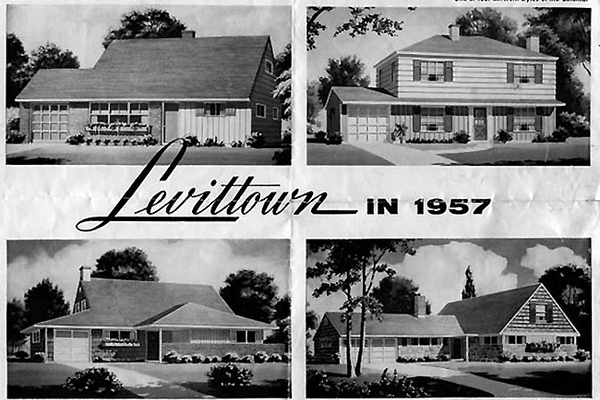Love Comes Softly, chapters 15-16
First, I want to note that one reader took pictures of some Little House pages that mention birthdays. In one mention, Pa and Mary give Laura her simple, homemade gifts—similar to those Missie received—and Ma bakes some little cakes for the occasion. How this fits in with Chudacoff’s thesis I am not entirely certain. Laura was growing up in the 1870s, a decade or two after Love Comes Softly is (probably) set. It may only (or primarily) be Marty’s freakout over whether she needed to put together a birthday party for Missie that was ahistorical.
Either way, Clark now knows that Marty is pregnant.
And it occurs to me that I never went over how many weeks pregnant Marty is. Marty ultimately has her baby smack dab in the middle of February. Clem died in mid-October, and it has been two and a half weeks since then. Missie’s birthday was November 2nd. That means Marty is about 25 weeks pregnant. Some women show differently than other women, and Marty wears clothing that is fairly loose, so I’m going to rate Clark’s not noticing until now believable.
Last week, as you may remember, Marty finally realized that she wasn’t taking care of the chickens, and that she probably should be. But when she gets up the next morning, the weather is terrible—Oke tells us that “the sky was dark and scowling,” and the wind is something fierce—so she decides not to mention it.
I think?
Very few chickens appeared outside of the coop, and those that did soon dashed back to the warmth of the building. As Marty noted their flight from the blast, she remembered her resolve to speak to Clark about assuming the care of them.
“Dad-burn,” she exclaimed under her breath, “I sure did pick me a grand time to be starting’.”
The chickens aren’t mentioned again in this section. Curious, I checked, and the only relevant mention of the chickens in the rest of the book is toward the end, when they are told that “three of Marty’s eight hens were sitting on eggs.” So presumably she does take over the care of the chickens, but we never see it happen. Which is interesting.
Several readers have noted that Oke’s book is very different from the other Christian fiction I have reviewed in that it doesn’t spend the whole time shoving morals and theological points in people’s faces. Here’s an example of that:
Clark’s prayer at breakfast that morning included a thanks to the Almighty for the warm shelter that was theirs, both for man and beast and for the fact that they need not fear the cold of winter, due to the mercies of their great God. An’ to this hardworking man hisself, added Marty mentally. However, she did acknowledge the truth found in the prayer. It was comforting to know they were prepared for the cold winter ahead.
Marty’s being a little dismissive of the idea of chalking all this up to God, but Oke doesn’t appear to judge her for it—and indeed, I don’t get the feeling Oke completely disagrees with Marty. Besides, the point of this section of the book is that Marty is starting to really appreciate Clark, so this feels less like a theological fact than a growing understanding, on Marty’s part, of all the hard work Clark has put into this place.
After breakfast, we get this bit:
Marty was just getting around to wondering once again what on earth she would do with Clark around the house all day, when he took her completely off guard.
“I’ll be leavin’ fer town right away,” he said. “Is there anythin’ that ya be needin’?”
“But it’s only Friday,” Marty responded.
“Yes’m, I know thet, but I have some business there thet I’d like to be a seein’ to right away like, an’ if a storm comes up, we might jest have to sit tight a spell.”
Marty presumably assumed that Clark would be underfoot around the house because the weather is so bad that he can’t work on things outdoors. Right? But if the weather is that bad, why is Clark going into town? This sounds like a terrible idea.
Clark doesn’t have to go into town. Marty doesn’t learn his reason for this sudden visit until months after this, but I’ll go ahead and tell you—Clark wants to get a doctor in town before Marty gives birth. But how does he even think this is possible, if transportation is so limited that Marty has to wait out the winter before she has any way to go back east?
I don’t think Oke has been able to decide how isolated they are. On the one hand, there’s a town nearby, a town large enough to have a variety of different stores, and getting a doctor to move in in the winter is apparently a thing that is theoretically possible. On the other hand, their area is only accessible by wagon train, and only during the summer.
Clark wants to get to town—and fast—to start the doctor seeking process. Therefore, he’s willing to go out in dangerous and potentially volatile weather. And he knows this.
Before we get to the weather though, there’s this:
“I’m right sorry thet I didn’t know. I might have saved ya some of the harder things. Form now on, ya’ll do no more totin’ of them heavy water pails. When ya be needin’ extra water fer washin’ an’ sech, ya be lettin’ me know.”
So Marty has been hauling water.
“We be blessed with lots of good fresh milk. I hope ya be takin’ advantage of it.”
Given that they have three milk cows and three people, Marty is already drinking their weight in it—as are Clark and Missie. Because if they’re not, they’re dumping it out.
Clark says he’ll have Mrs. McDonald pack up a bundle of sewing things for the baby. This leaves me curious. Would people buy new cloth for baby clothes, or would they piece them out of scraps from other projects? Also, what happened to Missie’s baby things? Back then, babies wore gender neutral clothes. Shouldn’t Clark ask Marty to go through Missie’s old things and determine what (if anything) needs to be added to them?
No one mentions Missie’s baby clothes. Maybe Clark doesn’t want a baby that isn’t Ellen’s wearing them, since Ellen made them (presumably). Or maybe Marty doesn’t want her baby in clothes Ellen made. But none of this is even addressed.
Marty looks outside, severely worried about the weather.
He seemed to read her thoughts.
“Plenty of time to git to town an’ back,” he said. “Iffen a storm should catch me, there be plenty of neighbors livin’ between here an’ town, an’ I’d be able to take shelter with one of them if I be needin’ to.”
“But … but what ’bout the chores?” Marty stammered. “I don’t even know what to do, or where to find the feed, or nuthin’.”
Clark swung around to face her, and it was clear from the look on his face that he had not considered the question of her with the chores.
Seriously?
He tells her that if there’s a storm and he doesn’t come back, she is not to leave the house. Period. Not for the hens, or the hogs, or the cows. She isn’t to step foot outside.
“Nuthin’—I mean nuthin’—out there be so important thet I want ya out there in a storm tryin’ ta care fer it.”
Here’s a thought—maybe don’t go to town on a day when a storm is likely.
All of you writing fan fiction, this gives you more to work with—he doesn’t want Marty in the barn. What is in the barn, exactly? Perhaps the hologram generator?
Clark suggests that Marty may enjoy spending the day piecing a quilt for the baby, since it’s all cold and blustery. As he leaves, he turns and says this:
“I be right glad thet ya’ll have a little’un to remember ‘im by.”
I said when I started this review series that I’d reread the book and had found Clark to be a decent person. There have been a few moments where some of you have disagreed with me on this—Clark doesn’t communicate and expects Marty to read his mind—but these are the moments that undergird my analysis. There are many men who don’t want to raise some other man’s child. Clark isn’t one of them.
Although, at this point, Marty is still planning to leave to head back east, alone, with a baby and a two-year-old. And Clark is planning to just let her. (Or else he lied to her when he said she could leave in the spring). That entire bargain still makes no sense.
This chapter and the next feel very connected, so we’re going to keep going. Clark returns as the snow starts falling. It’s cold, and Marty is still worried about him. She makes sure he warms up as soon as he comes inside. He gives her a huge bundle with such beautiful cloth that she is once again taken aback. Clark appears to have unlimited resources.
And then there’s this part, which is fairly significant:
“Thet there fair-sized bundle be yourn,” Clark said. “Mrs. Mc. Donald was right excited ’bout fixin’ it up. Think she was a mite confused. Seemed to think it was my young’un. It bein’ none of her business, I didn’t bother none to set her straight.”
He swallowed a few more gulps of hot coffee. Marty’s thoughts whirled.
His young’un? How could it be his young’un, us not even being’ true man an’ wife? ‘Course, Mrs. McDonald wouldn’t be knowin’ thet. She felt her face coloring in embarrassment.
Clark put down his cup and calmly continued. “I got ta thinkin’ later, though, thet maybe I should’ve said somethin’, so I went back. ‘Mrs. McDonald,’ I says, ‘true, my missus be havin’ a young’un, and true I’ll be a treatin’ it as one of mine, but also true thet the pa be her first husband an’ thet bein’ important to her, I wouldn’t want folks gettin’ things mixed up like.'”
Did I mention that this chapter is titled “Thoughtful and Caring”? The point of this exchange is that Clark is a genuinely decent human being who cares about Marty’s feelings, and considers them. Clarks words have a serious impact on Marty, as she realizes this.
He understood. He’d gone back to the store to set Mrs. McDonald straight because he knew, as Ma Graham had told Marty, that her tongue was the busiest part of her anatomy. …
Clark understands that it be important to me that the new baby be known as Clem’s.
But I’m left with a few questions, reading this passage now.
First, did Clark actually know this, or did he assume it? He and Marty haven’t actually discussed the baby, at all. The extent of it was him telling Marty not to lift heavy pails of water anymore, and telling Marty that he would be getting things for making baby clothes from Mrs. McDonald. He also told Marty that he’s glad she’ll have a little one to remember Clem by, but he hasn’t actually asked her feelings on any of this.
I could see a possible reality where Marty just isn’t ready to think about having a baby yet. Clark’s purchasing baby things, without even asking her if that was okay, or if she needed them (how does he know she doesn’t have things in her trunk?), could be extremely painful to Marty. In asking Mrs. McDonald to due up a package, Clark decided independently that it was time to announce to the world that she’s having a baby.
Clark believes that it’s important to Marty that this baby be known as Clem’s because having Missie to remember Ellen by is really significant to him. In fact, earlier in the book he felt bad for Marty because she didn’t have a child to remember Clem by. Clark is imputing his own experience onto Marty. And while he is in fact correct about what she’s feeling, he’s still making assumptions rather than communicating with her.
Second, how in the blazes did Mrs. McDonald think this was Clark’s child? Marty has been married to Clark for exactly two weeks and three days now. Even if she and Clark had sex the very first night—and the timing of the month had been perfect for her to conceive—she’d only just now be missing her period. At the very most, she might be two or three days late. And she just experienced significant trauma, which can affect things like this.
Surely Mrs. McDonald would be able to do something as basic as count the days. Even if she failed to do this, the very first woman she told this news to ought to be capable of counting the days and concluding that this couldn’t be Clark’s baby. This is a time when women were having an average of five or six children each. They knew how this stuff worked.
Clark also has a knack for telling stories such that you don’t know what’s coming until it’s over. He let Marty think he’d let Mrs. McDonald think the baby was his for a good few minutes while he sat there drinking coffee. This would read as dramatic story telling if he wasn’t dealing with information that was extremely personal and raw.
Clark is clearly trying to do the right thing. That’s why he went back to talk to Mrs. McDonald again. But really, as soon as he realized Marty was pregnant, he should have sat down with her and asked her how she wants to handle things like this. She may not even have wanted people to know she was pregnant yet. He didn’t give her that choice.
And they still can’t actually communicate.
The evening was still young, and Marty was anxious to get started on her sewing, but she realized how cold her room would be.
Remember—Clark put the sewing machine in the bedroom rather than in the sitting room because he didn’t want to see it every day and be reminded of Ellen, since he bought it as a surprise for her before she died. When he packed it from the box, he was so broken up over the memories of Ellen it brought him that he had to fight for composure.
Actually. This is how weird this book is—after writing the above paragraph, I decided to double check, and Oke doesn’t actually tell us why Clark puts the sewing machine in the bedroom rather than the sitting room. Once he has it unpacked, he says “I’ll move it into yer room under the window iffen it pleases ya,” and that’s it.
Later, Marty muses about how crowded the bedroom is, with the chests and the crib and the sewing machine, and how much more room there is for the sewing machine in the sitting room. “She was sure that for Clark to have to see it continually would be a hurtful reminder,” however, so she decides not to worry about how crowded the bedroom is, “to spare him that much.” But she never asks him.
These characters are making so many assumptions about each other. They’re so bad at communicating. Asking Clark about moving the machine never seems to occur to Marty.
She was still trying to figure out some answer to her problem as she emptied her dishpan and replaced it on its peg.
“It’ll be right cold in yer room from now on,” she heard Clark say behind her. “Do ya be wantin’ yer machine moved out to the sittin’ room? There be plenty of room there fer it.”
Good thing Clark can read minds.
Oh, and one more thing—women are assumed to be thoughtful, and men aren’t. We’ve seen Marty decide to leave her bedroom overcrowded out of sensitivity to Clark, but we didn’t get any long rambling analysis of this. But when Clark decides to take an action out of sensitivity to Marty, he’s all sorts of special, and Marty is blown away.
After Clark offers to move the machine to the living room, Marty asks if it’ll bother him to see it there. He says it will, a bit, but he’ll get used to it.
Yes, Marty thought to herself, this man will do the right thing even if it hurts.
Except when it comes to going into town as a storm comes in, risking his own safety and that of his entire livelihood, on the impossible hope that he can get a doctor to move to their town in the middle of winter, because he’s scared to death Marty will die in childbirth.
You see why I think Ellen’s death has to have been related to miscarriage or childbirth, despite the complete lack of details in Ma Graham’s telling of it? If Ellen died of some sort of random fever or disease, he’d have been fighting to get a doctor in since she passed, out of fear that the same would happen to Missie, or, later, to Marty. But no. He doesn’t freak out and begin the doctor acquisition proceedings until he finds out Marty is pregnant.
Still, Marty’s feelings toward Clark are starting to change.
If things had to be as they were, caught in a marriage she certainly would not have chosen on her own, she could have done worse.
Well, yes. And I don’t think that was ever fully explored. She married Clark knowing nothing about him. It seems to me that she ought to have at least taken Ma Graham or one of the other women aside and asked for a report on Clark, before her final agreement. For all she knew at the time, Clark could have beaten Ellen to death.
She still ached for her Clem. She wished him back, even if it meant having far less than what she had now.
Every time it gets colder, she imagines still being in that wagon. I am starting to think she was wiser to Clem’s lack of preparation than she gave on, because she seems to assume that if Clem hadn’t died, she’d still be stuck in that damn wagon, freezing to death.
Still, she would be unfair if she refused to see the goodness in this man whose name she had taken and whose home she shared. That he was a real worker and a good provider was apparent, but she was discovering other things about him, too—things like thoughtfulness and caring. Certainly she couldn’t fault him in his demands on her. She was only expected to be Missie’s mama and to keep up the little home.
The little home? Really? That’s what we’re calling it? This isn’t the 1950s. This isn’t a Levittown house stocked with a hoover vacuum and a brand new refrigerator.
She’s on a farm in the 1860s. She’s not “keeping up” a little home, she’s running a full-blown farming household, with all that that entails! Or at least, that’s what she’s supposed to be doing!
I mean, just what is in the barn?
I have a Patreon! Please support my writing!
















